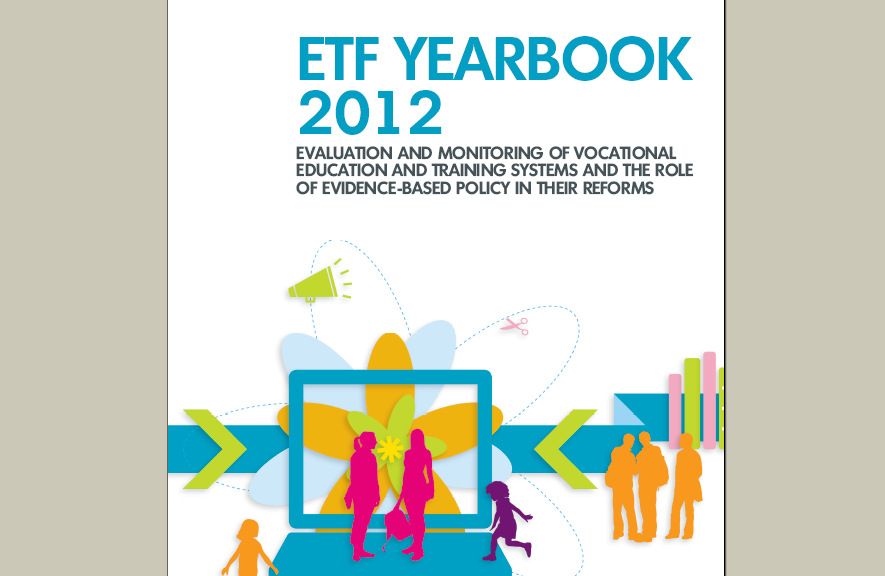 21st Annual EfVET International Conference. The drive toward European Credit Transfer within Vocational Education and Training (ECVET) and the new LLP programme ’Erasmus for All’ 2014 - 2020. Palma de Mallorca, 24th–27th October 2012 Wednesday
21st Annual EfVET International Conference. The drive toward European Credit Transfer within Vocational Education and Training (ECVET) and the new LLP programme ’Erasmus for All’ 2014 - 2020. Palma de Mallorca, 24th–27th October 2012 Wednesday
24th October 18:00 – 19:00 Welcome and information session for new members and first time participants: -“Introduction to EfVET and the conference”. Mr Peter Hodgson, President of EfVET, and the Steering Committee members
19:00 – 20:00 Reception for all delegates and partners: Hotel MELIÁ PALAS ATENEA
20:00 Dinner/cultural evening: Hotel MELIÁ PALAS ATENEA Thursday
25th October 09:15 – 09:25 Welcome to PALMA DE MALLORCA: Day Chair Dr Stylianos Mavromoustakos
Welcome to the conference: Mrs Marian de Villanueva – Spanish National Representative and Conference Host
09:25 – 09:45 Welcome to PALMA DE MALLORCA and opening of Conference – Major of Palma de Mallorca (tbc)
09:45 – 10:15 Setting the theme: Mr Pete Hodgson, President of EfVET
10:15 – 10:45 Keynote speaker:
Mr Jan Truszczynski, Director General Education and Culture, European Commission addressing the new programme and the two initiatives Erasmus for All and ECVET
10:45 – 11:10 Refreshment break
11:10 – 11.40 ECVET – its implementation, timescales and review of 11 Pilot projects – implications for European VET institutions – Ms Daniela Ulicna, GHK Consulting Ltd
11.40 – 13.10 Workshop session 1
- Employability skills development and meeting the needs of the unemployed –both young and mature persons
- Tackling early ‘drop out’ and re-engaging young people in education and training
- Skills development through Entrepreneurship training
- The role of mobility in expanding opportunity – The value added of participation in the Europemobility Network, Mr Stefano Tirati (CSCS)
- Innovation in teaching, curriculum development and learning outcomes, Mr Luis Costa (ANESPO)
- The increasing need for collaboration and partnership across the VET arena Ms Annejet de Goede (NL)
14:30 – 16:00 Workshop session 2
- Employability skills development and meeting the needs of the unemployed –both young and mature persons
- Tackling early ‘drop out’ and re-engaging young people in education and training
- Skills development through Entrepreneurship training
- The role of mobility in expanding opportunity – The value added of participation in the Europemobility Network, Mr Stefano Tirati (CSCS)
- Innovation in teaching, curriculum development and learning outcomes, Mr Luis Costa (ANESPO)
- The increasing need for collaboration and partnership across the VET arena Ms Annejet de Goede (NL)
16:30 – 17.00 Keynote speaker:
European Quality Assurance Framework and tools for improving quality in VET (on-line quality assurance/assessment tool) Mr Sean Feerick or Mr Keith Brumfitt (tbc)
26th October
09:00 – 10:00 Annual General Meeting
10:00 – 10:40 Keynote speaker:
Representative from the Cyprus LLP National Agency Erasmus for All Programme- National perspective, Ms Androula Papanastasiou – Director of Cyprus LLP National Agency
10.40 -11.25 Gallery Walk of poster session: allowing all delegates to explore over 30 or so European projects and development initiatives
12.05 – 13.05 Roundtables – session 1
Conference offers European project partners the opportunity to disseminate progress, results and products of their Transnational Transfer of Innovation; Development of Innovation and other European initiatives – a key to successful valorisation of project outcomes and sustainability
Two sessions of 30 minutes each
(Note: Delegates will have time throughout the conference to explore project outcomes and results and indeed identify further partnerships and project possibilities for future Lifelong Learning Programme initiatives)
14:35 – 15.35 Roundtables - session 2
Two sessions of 30 minutes each.
(Note: Delegates will have time throughout the conference to explore project outcomes and results and indeed identify further partnerships and project possibilities for future Lifelong Learning Programme initiatives)
15.35 – 17:00 Networking and Transnational collaboration: Mobility Marketplace and project presentations (delegates with ideas for projects and partnership can prepare posters presenting briefly the concept.
Saturday 27th October 10:00 – 11:00 Results of workshops: key recommendations from each workshop will be presented and discuss
11:00 – 11:30 Conference conclusions - Mr Kim von Bülow, CPH West
11:30 – 12:00 Announcement of 22nd EfVET Annual International Conference in 2013
Closing of the conference - Mr Peter Hodgson, President, EfVET.
Past Conferences EFVET 2011 EFVET 2010 EFVET 2009 EFVET 2008
EFVET 2007
EFVET 2006
EFVET 2005
EFVET 2004
EFVET 2003
EFVET 2002
EFVET 2001  Vocational education and training: new online tool enhances quality
Vocational education and training: new online tool enhances quality









/https%3A%2F%2Fprofilepics.canalblog.com%2Fprofilepics%2F1%2F0%2F1076071.jpg)